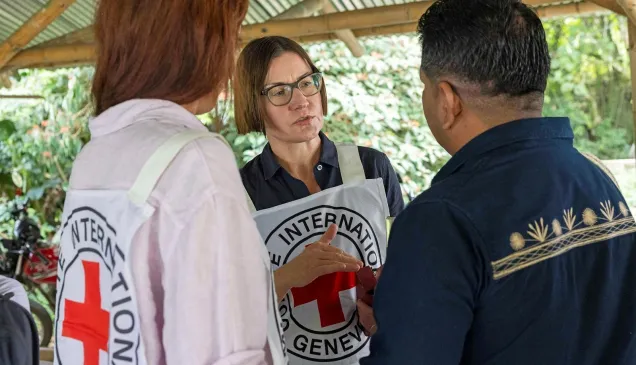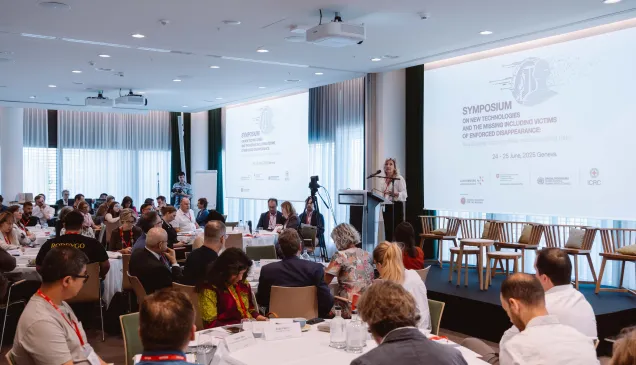The first progress report on the initiative highlights concrete proposals from states to strengthen respect for international humanitarian law (IHL), including updated military training, stronger national accountability mechanisms, identifying risk factors that heighten the likelihood of violations and addressing them before or as they emerge. States also emphasized the importance of incorporating IHL rules into peace agreements and signalled readiness to respond to growing concerns about potentially unjustified attacks on medical facilities by exploring practical ways to strengthen precautions and verify allegations that hospitals are used for military purposes.
"The Geneva Conventions were designed to shield civilians, prisoners of war, detainees and those no longer taking part in the fighting. Their protective power must be upheld. The lives of millions of people, and the very core of our shared humanity, depend on states faithfully upholding IHL," said ICRC President Mirjana Spoljaric. "If states do not act now, the brutality seen in today's wars risks becoming the baseline for conflicts tomorrow. It is within states' power to preserve humanity during war, but they must take the political decision to stand firmly against any erosion of respect for the rules of war."
The report comes after the leaders of Brazil, China, France, Jordan, Kazakhstan, and South Africa called on all states to take action against widespread IHL violations. In a statement issued on the margins of the UN General Assembly in September, they urged governments to prioritize IHL domestically by allocating sufficient resources to ensure compliance, integrate IHL into national frameworks through legislation, military and security training. They also called for the empowerment of national IHL committees and underlined the need to engage in the global IHL initiative by formally joining, contributing actively to consultations and encouraging wider participation.
"We were driven by a deep sense of responsibility and urgency to act decisively to stem the tide of violations of international humanitarian law the world is witnessing," the founding states declared.
The progress report reveals that more than 130 states have participated in global and regional consultations over the past year, with an interpretation of IHL that safeguards people and civilian objects emerging as the common thread from these discussions. The findings demonstrate strong engagement, with 90 states formally joining the initiative and 27 states co-leading seven thematic work streams addressing contemporary challenges to IHL.
The ICRC calls on more states to rally behind and defend the protective spirit behind international humanitarian law. Placing civilians, humanitarian personnel and vital infrastructure at excessive and avoidable risk should not be disguised as military necessities. These are violations of the law. Without renewed resolve by all parties to armed conflict and those who have influence on them to respect the rules of war, atrocities and hostilities risk spiralling beyond control, causing irreversible human, political and economic harm. The global IHL initiative will culminate in a high-level meeting in 2026 dedicated to upholding humanity in war.
More information as well as the progress report can be found here:
Dedicated website: https://www.upholdhumanityinwar.org/
For more information, please contact:
Press Office, ICRC Geneva, press@icrc.org




